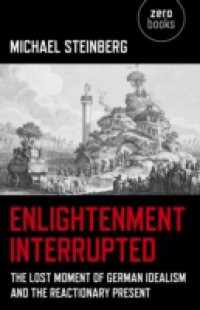The modern world claims to inherit the values of the Enlightenment. Enlightenment Interrupted suggests a different genealogy. Instead of carrying on the Enlightenment it grew out of its suppression and forgetting, a founding act of bad faith and willed blindness that has haunted our world from its birth. In this groundbreaking analysis Michael Steinberg restores German Idealism to its rightful place as the culmination of the Enlightenment critique. Its great achievement was to move beyond the self-world dichotomy at the heart of Western thought. In the work of Fichte, especially, the recognition that all human life is the product of collective human activity had revolutionary implications. After 1815, however, in the aftermath of a quarter century of revolution, philosophers and politicians alike swept such challenges under the carpet. Modernity was thus founded in reaction. Lucidly written and accessible to non-specialists, Enlightenment Interrupted places the Idealists in the contexts of Romanticism, the brief contemporary openness to non-Western thought, and the political and social experimentation of the French Revolution. What followed was not a development of those tendencies but a retreat to the opposition of self and world and a drastic reduction in intellectual and social possibilities. This is one source of the collective impotence that sees the twenty-first century in a lockstep march to disaster

